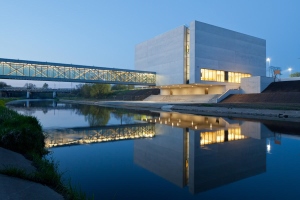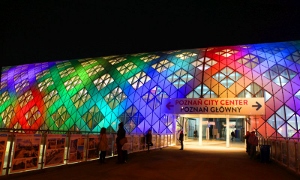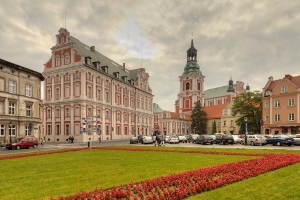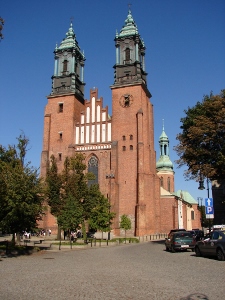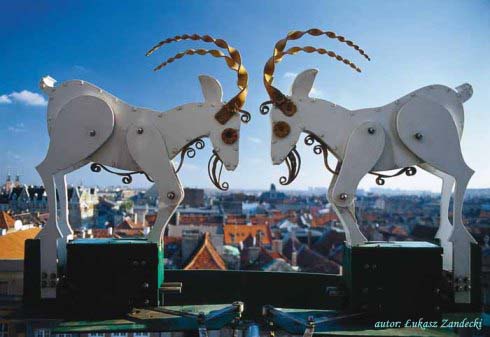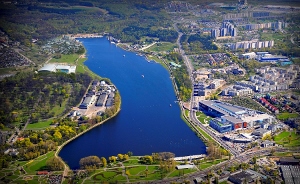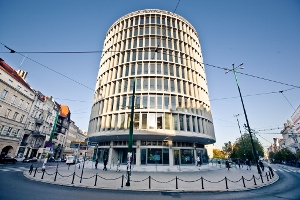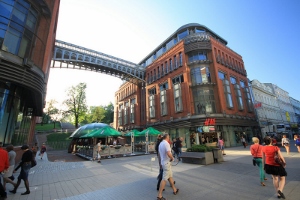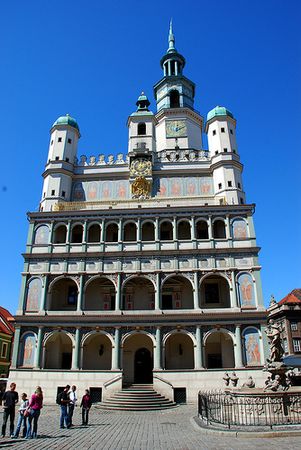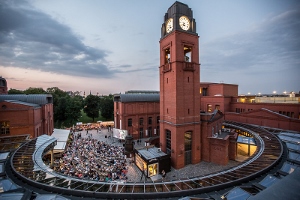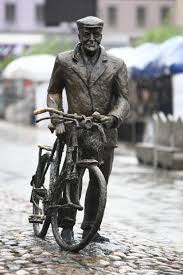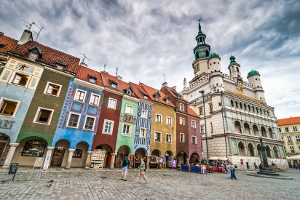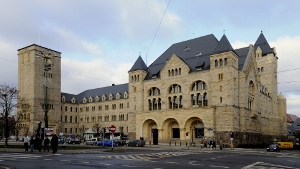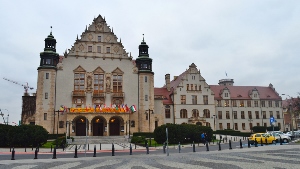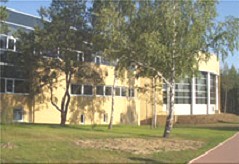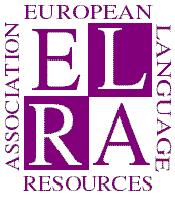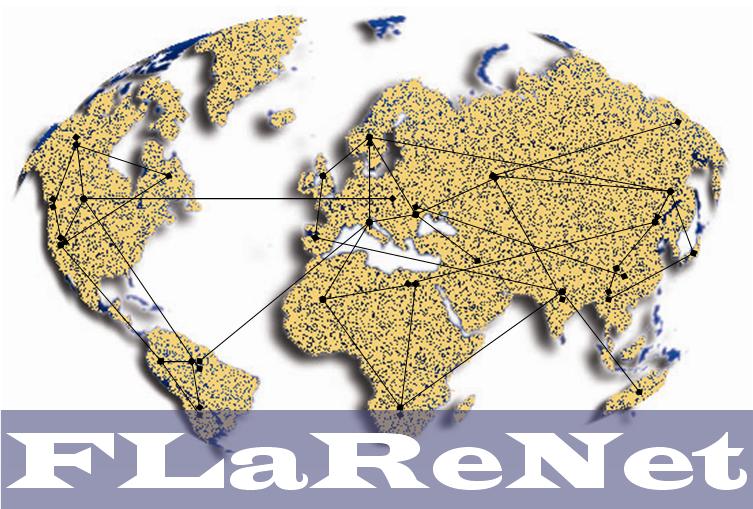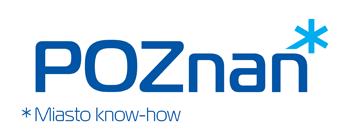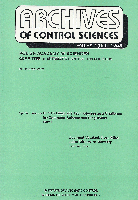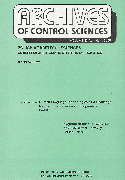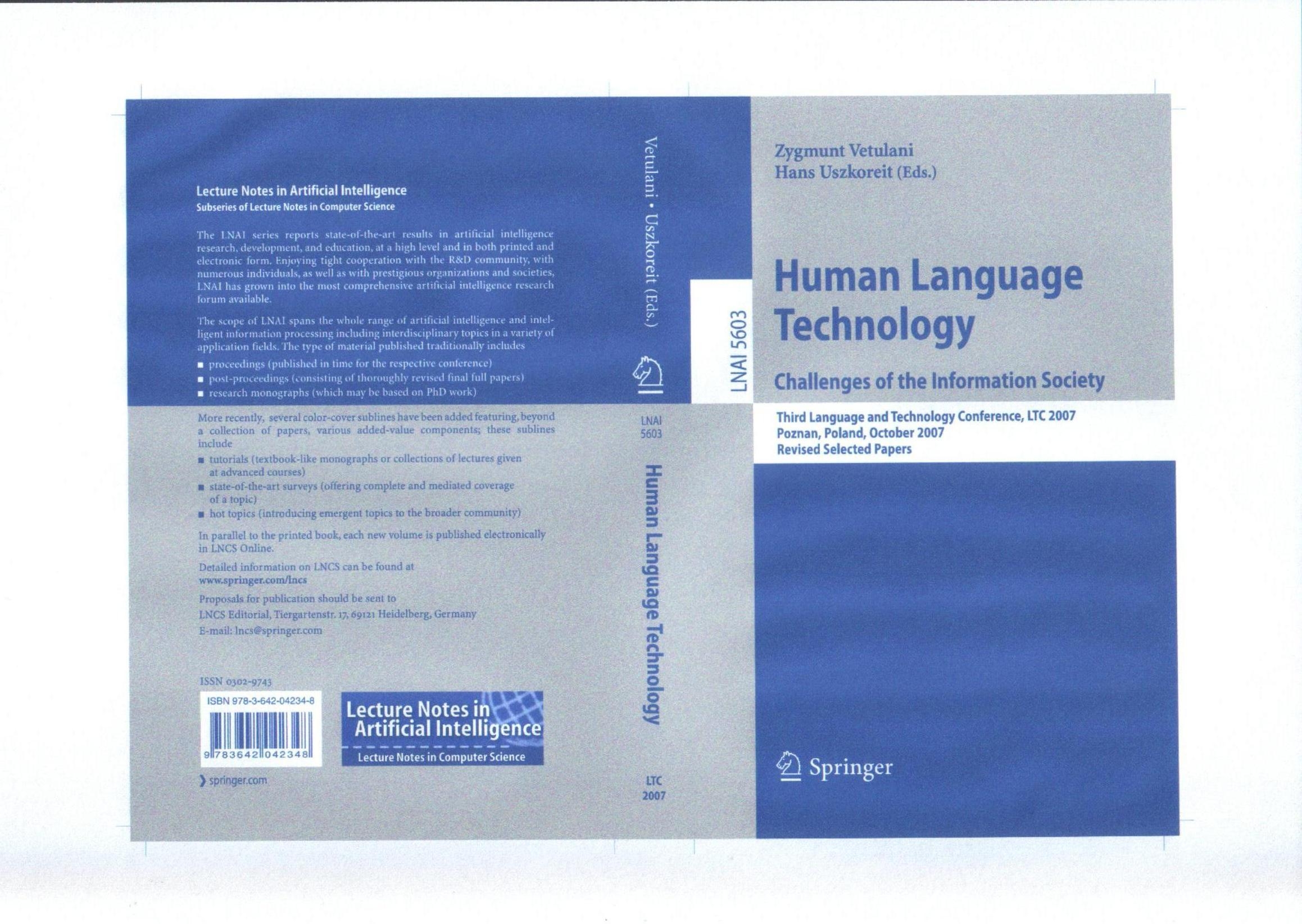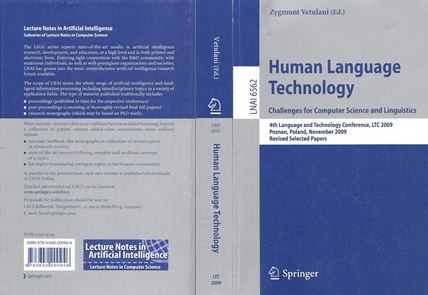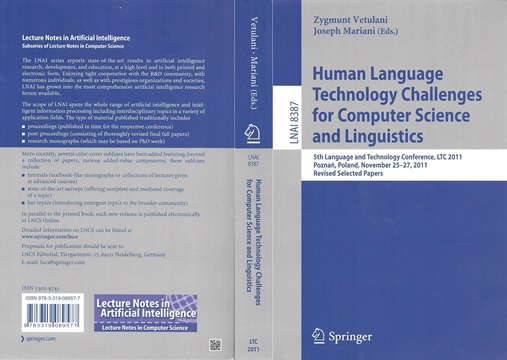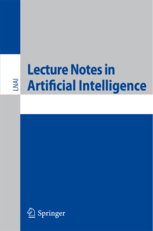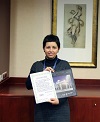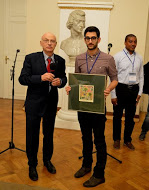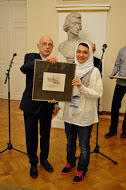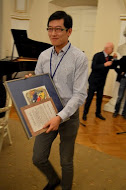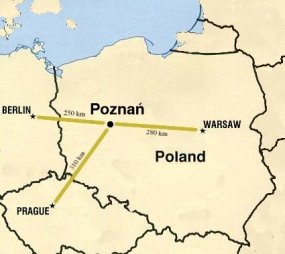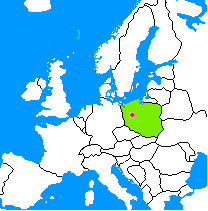|
|
|
Day 1, Friday, November 27, 2015
|
|
Hotel Andersia
|
|
8:30 - 10:30
|
Registration / Welcome coffee
|
|
10:30 - 10:40
|
Opening by the Rector Magnificus
|
|
10:40 - 11:20
|
Digital Europe goes Multilingual for cultural, social, economical progress
Invited talk by Jan Roukens PDF
|
|
11:20 - 11:50
|
Rediscovering 20 Years of Discoveries in Language & Technnology
Joseph Mariani, Patrick Paroubek, Gil Francopoulo and Zygmunt Vetulani PDF
|
|
11:50 - 12:30
|
To the memory of Adam Kilgarriff
Invited talk by Karel Pala and Pavel Rychlý PDF
|
|
12:30 - 14:20
|
Lunch break
|
|
14:20 - 15:40
|
TAN 1
Rafał Jaworski
|
IR/IE
Maciej Piasecki
|
SPEECH 1
Girish Nath Jha
|
|
15:40 - 16:10
|
Coffee break
|
|
16:10 - 17:50
|
OWN
Patrick Paroubek
|
MT
Krzysztof Jassem
|
SPEECH 2
Katarzyna Klessa
|
|
19:30 - 20:30
|
Social program
|
|
Day 2, Saturday, November 28, 2015
|
|
Hotel Andersia
|
|
8:30 - 9:50
|
TAN 2
Yves Lepage
|
LRT
Fumiyo Fukumoto
|
SPEECH 3
Bartosz Ziółko
|
|
9:50 - 10:30
|
Presentation by the LTC sponsor PDF
Introduction of Samsung R&D Institute Poland
Exploring New Approaches towards Better Speech Translation
|
|
10:30 - 12:00
|
DEMO session & coffee
|
|
12:00 - 12:40
|
Machine translation and language resources for under-resourced European languages: challenges and experiences
LRL Workshop invited talk by Mikel L. Forcada PDF
|
|
12:40 - 14:00
|
Lunch break
|
|
14:00 - 16:00
|
LRL Workshop
|
EDO Workshop
|
|
|
16:00 - 16:30
|
Coffee break
|
|
16:30 - 19:30
|
LRL Workshop
|
EDO Workshop
|
SAIBS Workshop
|
|
20:15 - 00:00
|
Conference banquet
The AMU Foundation - support for doctoral students
Invited talk by Jacek Guliński PDF
|
|
Day 3, Sunday, November 29, 2015
|
|
Hotel Andersia
|
|
9:15 - 10:00
|
Language Technologies and Endangered Language: Selected Cases
Invited talk by Dafydd Gibbon
|
|
10:00 - 10:30
|
Coffee break
|
|
10:30 - 11:50
|
TAN 3
Rafał Rzepka
|
TANO 1
Irina Illina
|
APP
Dafydd Gibbon
|
|
11:50 - 12:50
|
Panel discussion: Mass War Migrations and New Challenges for Language Technologies in Europe
Moderator: Dafydd Gibbon
|
|
12:50 - 14:15
|
Lunch break
|
|
14:15 - 15:35
|
PAR
Agnieszka Mykowiecka
|
TANO2/SEM
Elzbieta Hajnicz
|
MWE
Cvetana Krstev
|
|
15:40 - 16:20
|
Transfer to Porta Posnania ICHOT
|
|
Porta Posnania ICHOT
|
|
16:20 - 19:00
|
Visit to the Historical Documentation Center (guided)
|
|
|
Closure session with a glass of wine
|
| Day 1: November 27, 2015 |
| Session TAN 1: Text Analysis 1 |
| 14:20 - 15:40 |
| 3 | Transformation Based Learning Algorithm in Myanmar Preposition Checker PDF | Khaing Htet Win |
| 13 | Word segmentation based on proportional analogy and majority voting PDF | Zhongrong Zheng and Yves Lepage |
| 15 | Improving chunker performance using a web-based semi-automatic training data analysis tool PDF | István Endrédy |
| 17 | Combining various degrees of supervision in PP-attachment disambiguation PDF | Katarzyna Krasnowska and Adam Przepiórkowski |
| Session IR/IE: Information Retrieval/Information Extraction | | 14:20 - 15:40 |
| 21 | Answer Extraction for Question Answering Game Application PDF | Desmond Darma Putra, Volha Petukhova and Dietrich Klakow |
| 38 | Short Text Categorization by Smoothing Word Distribution PDF | Fumiyo Fukumoto and Yoshimi Suzuki |
| 55 | Extraction of part-whole relations from Polish texts based on Wikipedia and Cyc PDF | Aleksander Smywiński-Pohl |
| 86 | Events Extractor for Polish in a Semantics-Driven Mode PDF | Jolanta Cybulka and Jakub Dutkiewicz |
| Session SPEECH 1: Speech Processing | | 14:20 - 15:40 |
| 60 | On Improving Speech Recognition and Keyword Spotting With Automatically Generated Morphological Units PDF | Arseniy Gorin, Lori Lamel, Jean-Luc Gauvain and Thiago Fraga-Silva |
| 6 | Ortfon2 - tool for orthographic to phonetic transcription PDF | Dawid Skurzok, Bartosz Ziółko and Mariusz Ziólko |
| 9 | Neural Networks for Proper Name Retrieval from Diachronic Documents PDF | Irina Illina and Dominique Fohr |
| 90 | Consistency of Prosodic Annotation of Spontaneous Speech for Technology Needs PDF | Jolanta Bachan, Agnieszka Wagner, Katarzyna Klessa and Grazyna Demenko |
| Session OWN: Ontologies and Wordnets | | 16:10 - 17:50 |
| 54 | Introducing a structure into a set of similar concepts PDF | Agnieszka Mykowiecka and Malgorzata Marciniak |
| 85 | Ontology-based Generation of Event Extraction Templates and Frames PDF | Jolanta Cybulka, Jakub Dutkiewicz and Michal Zetkowski |
| 96 | Exploiting Linked Linguistic Resources for Semantic Role Labeling PDF | András Simonyi, Balázs Indig and Márton Miháltz |
| 99 | Wordnet-based Similarity Measure for Polish Short Texts PDF | Maciej Piasecki and Anna Gut |
| 106 | A semantic similarity measurement tool for WordNet-like databases PDF | Marek Kubis |
| Session MT: Machine Translation | | 16:10 - 17:50 |
| 2 | A novel method for finding and scoring valuable translation memory repetitions PDF | Rafał Jaworski |
| 7 | Multi-processing and approximations in associative methods for faster training of PB-SMT systems PDF | Yves Lepage and Baosong Yang |
| 14 | Analogy-based on-line reordering approach for machine translation PDF | Hao Wang and Yves Lepage |
| 75 | Quality Estimation for English-Hungarian Machine Translation PDF | Zijian Gyozo Yang and László János Laki |
| 84 | Interpreting the predicate-argument representation for the needs of the Thetos translator PDF | Iuliia Romaniuk, Nina Suszczanska and Przemyslaw Szmal |
| Session SPEECH 2: Speech Processing | | 16:10 - 17:50 |
| 10 | Cross-Lingual Adaptation of Broadcast Transcription System to Polish Language Using Public Data Sources PDF | Jan Nouza, Petr Cerva and Radek Safarík |
| 37 | Automatic Subtitling System for Transcription, Archiving and Indexing of Slovak Audiovisual Recordings PDF | Ján Stas, Peter Viszlay, Martin Lojka, Tomás Koctúr, Daniel Hládek, Eva Kiktová, Matús Pleva and Jozef Juhár |
| 45 | Use case : a mobile speech assistant for people with speech disorders PDF | Agnieszka Bętkowska Cavalcante and Leszek Lorens |
| 48 | Automatic differentiation between normal and disordered speech PDF | Jan Felcyn and Agnieszka Bętkowska Cavalcante |
| 70 | Auto-correction of Consumer Generated Text in Semi-Formal Environment PDF | Lipika Dey and Gargi Roy |
| Day 2: November 28, 2015 |
| Session TAN 2: Text Analysis 2 |
| 8:30 - 9:50 |
| 18 | Exploiting of the time information in subtitle-like parallel multi-lingual data PDF | Marek Bohác and Michal Rott |
| 19 | HunTag3: a general-purpose, modular sequential tagger -- chunking phrases in English and maximal NPs and NER for Hungarian PDF | István Endrédy and Balázs Indig |
| 44 | A Lexical Approach to Acronyms and their Definitions PDF | Cvetana Krstev, Dusko Vitas and Ranka Stankovic |
| 35 | SEJF - a Grammatical Lexicon of Polish Multi-Word Expressions PDF | Monika Czerepowicka and Agata Savary |
| Session LRT: Language Resources and Tools | | 8:30 - 9:50 |
| 32 | Modular Language Processing framework for Lightweight Applications (MLPLA) PDF | Adrian Zafiu, Stefan Daniel Dumitrescu and Tiberiu Boros |
| 58 | Corpus based evaluation of stemmers PDF | István Endrédy |
| 73 | Grammatical Error Correction with (almost) no Linguistic Knowledge PDF | Roman Grundkiewicz and Marcin Junczys-Dowmunt |
| 83 | RetroC -- A Corpus for Evaluating Temporal Classifiers PDF | Filip Gralinski and Piotr Wierzchon |
| Session SPEECH3: Speech Processing | | 8:30 - 9:50 |
| 87 | Shallow Parsing for Automatic Speech Recognition in Polish PDF | Alicja Wojcicka and Bartosz Zaborowski |
| 11 | A DNN Framework for Robust Speech Synthesis Systems Evaluation PDF | Moses Ekpenyong, Udoinyang Inyang and Victor Ekong |
| 100 | Automatic Syllabification of Polish PDF | Brigitte Bigi and Katarzyna Klessa |
| DEMO Session | | 10:30 - 12:00 |
| 74 | Combining Linguistic Knowledge with Machine Learning for Domain-Specific Named Entity Recognition /DEMO/ PDF | Lukasz Kobyliński |
| 98 | DEMO: Access to a valence dictionary of Polish Walenty via Internet browser PDF | Bartłomiej Nitoń, Tomasz Bartosiak, Elzbieta Hajnicz, Agnieszka Patejuk, Adam Przepiórkowski and Marcin Woliński |
| 105 | PolNet 3.0 /DEMO/ PDF | Zygmunt Vetulani, Grazyna Vetulani and Bartłomiej Kochanowski |
| 107 | Opinions Corpora Acquisition Software /DEMO/ PDF | Suleyman Menken, Zygmunt Vetulani and Marta Witkowska |
| 113 | Poema - Polish Sentiment Analyzer /DEMO/ PDF | Antoni Sobkowicz |
| 115 | PSI-Toolkit - an Extensible and Tightly Integrated Set of NLP Tools PDF | Krzysztof Jassem, Filip Graliński, Marcin Junczys-Dowmunt, Roman Grundkiewicz, Paweł Skórzewski, Marcin Walas, Rafał Jaworski and Tomasz Dwojak |
| 116 | plWordNet 2.3 emo and enWordNet 1.0: a demo PDF | Marek Maziarz, Maciej Piasecki, Ewa Rudnicka and Stan Szpakowicz |
| 117 | Demo of Langusta - the graph database envroiment for parsing of Polish PDF | Jan Posiadała, Hubert Czaja, Eliza Szczechla and Paweł Susicki |
| 119 | XTM Cloud - modern award-winning TMS and CAT software PDF | Mikołaj Lauer |
| 121 | DEMO of the latest developments in the Sketch Engine PDF | Pavel Rychly and Karel Pala |
| LRL Workshop | | 14:00 - 19:30 |
| 4 | Using Recurrent Neural Networks for joint compound splitting and Sandhi resolution in Sanskrit PDF | Oliver Hellwig |
| 27 | Normalising orthographic and dialectal variants for the automatic processing of Swiss German PDF | Tanja Samardzic, Yves Scherrer and Elvira Glaser |
| 29 | The Malagasy language in the digital age Challenges and perspectives PDF | Joro Ny Aina Ranaivoarison |
| 39 | Error Analysis of Named Entity Translation output for Poor-Resourced Bilingual Vietnamese-French Pair PDF | Ngoc Tan Le and Fatiha Sadat |
| 43 | Requirements of Mobile Web for Indian Languages - Gap Analysis & Way ahead PDF | Swaran Lata, Somnath Chandra and Prashant Verma |
| 47 | Tapadóir: Developing an SMT Engine and associate resources for Irish PDF | Meghan Dowling, Lauren Cassidy, Eimear Maguire, Ankit K. Srivastava, Teresa Lynn and John Judge |
| 52 | Using TypeCraft and Annotation Pro for multilayer annotation and analysis of Tense and Aspect in Krio PDF | Dorothee Beermann, Katarzyna Klessa and Beatrice Owusua Nyampong |
| 53 | National Language Technology Portals for LRLs: A Case Study PDF | Delyth Prys and Dewi Bryn Jones |
| 59 | The Digital Language Diversity Project PDF | Claudia Soria, Sirpa Hentula, Davyth Hicks, Eva Kuehhirt, Pertti Lampi, Justyna Pietrzak and Anneli Sarhimaa |
| 63 | (Re)thinking the BLaRK for Ancient Greek PDF | Federico Boschetti, Riccardo Del Gratta, Francesca Frontini, Anas Fahad Khan and Monica Monachini |
| 65 | Pronunciation Lexicon Development for Under-Resourced Languages Using Automatically Derived Subword Units: A Case Study on Scottish Gaelic PDF | Marzieh Razavi, Ramya Rasipuram and Mathew Magimai Doss |
| 69 | Looking forward by looking back: Applying lessons from 20 years of African language technology PDF | Martin Benjamin and Mohomodou Houssouba |
| 71 | Issues and Challenges in Developing Statistical PoS Taggers for Sambalpuri PDF | Pitambar Behera, Atul Kumar Ojha and Girish Jha |
| 72 | Quantifying the Use of Digital Welsh-language Language Resources PDF | Gruffudd Prys, Delyth Prys and Dewi Bryn Jones |
| EDO Workshop | | 14:00 - 19:30 |
| 40 | Opinion Extraction from Editorial Articles based on Context Information and Predicate Classification PDF | Yoshimi Suzuki and Fumiyo Fukumoto |
| 103 | A Tool for Corpus Based Studies on Language Expression of Opinions PDF | Zygmunt Vetulani, Marta Witkowska and Suleyman Menken |
| 1 | Extracting Patterns of Harmful Expressions for Cyberbullying Detection PDF | Michal Ptaszynski, Fumito Masui, Yasutomo Kimura, Rafal Rzepka and Kenji Araki |
| 8 | Incorporation of Latent Dirichlet Allocation for Aspect-Level Sentiment into Hierarchical Dirichlet Process-Based Topic Models PDF | Ming Yang and William Hsu |
| 41 | Exploiting Wikipedia-based Information-rich Taxonomy for Extracting Location and Creator Related Information for ConceptNet Expansion PDF | Marek Krawczyk, Rafal Rzepka and Kenji Araki |
| 82 | An application of automatic sentiment analysis methods in web-political discussions PDF | Antoni Sobkowicz and Marek Kozlowski |
| 91 | Comparing Shallow and Dependency Syntactic Analysis for Opinion Target Extraction PDF | Aleksander Wawer |
| 97 | Two-stage SVM sentiment and subjectivity classification PDF | Jakub Dutkiewicz and Czeslaw Jedrzejek |
| 102 | Local Government Name Disambiguation on Japanese Regional Assembly Minutes PDF | Fumitoshi Ashihara, Yasutomo Kimura and Kenji Araki |
| 112 | Cyberbullying Blocker Application for Android PDF | Pawel Lempa, Michal Ptaszynski and Fumito Masui |
| SAIBS Workshop | | 16:30 - 19:30 |
| 108 | An approach to trading strategy optimization by perfect timing PDF | Adam Wojciechowski |
| 109 | Sharing Services and Goods: the sharing economy management and perspective PDF | Fernando Ferri, Patrizia Grifoni and Adam Wojciechowski |
| 110 | Orwell. From Bitcoin to secure Domain Name System PDF | Michal Jabczynski and Michal Szychowiak |
| 111 | Health and assistance processes modeling and management at home and in residential structures by fusing sensor data PDF | Federica Cariani, Fernando Ferri, Patrizia Grifoni, Pierpaolo Mincarone, Carlo Giacomo Leo and Saverio Sabina |
| 114 | Estimation of the number of participants in government tenders with computational intelligence PDF | Yasemin Seren Demiray, Ahmet Murat Ozbayoglu and Bedri Kamil Onur Tas |
| Day 3: November 29, 2015 |
| Session TAN 3: Text Analysis 3 |
| 10:30 - 11:50 |
| 34 | PARSEME - PARSing and Multiword Expressions within a European multilingual network PDF | Agata Savary, Manfred Sailer, Yannick Parmentier, Michael Rosner, Victoria Rosén, Adam Przepiórkowski, Cvetana Krstev, Veronika Vincze, Beata Wójtowicz, Miriam Butt, Gyri Smřrdal Losnegaard, Carla Parra Escartín, Jakub Waszczuk, Matthieu Constant, Petya Osenova and Federico Sangati |
| 89 | Measuring readability of Polish texts PDF | Wlodzimierz Gruszczynski, Bartosz Broda, Edyta Charzynska, Lukasz Debowski, Milena Hadryan, Bartlomiej Niton and Maciej Ogrodniczuk |
| 56 | Simplifying Basque Texts: the Shallow Syntactic Substitution Simplification PDF | Itziar Gonzalez-Dios, Maria Jesus Aranzabe and Arantza Diaz De Ilarraza |
| 76 | A connectionist model of reading with error correction properties PDF | Max Raphael Sobroza Marques, Xiaoran Jiang, Olivier Dufor, Claude Berrou and Deok-Hee Kim-Dufor |
| Session TANO 1: Text Annotation 1 |
| 10:30 - 11:50 |
| 64 | Hybrid lexical tagging in Serbian PDF | Matthieu Constant, Cvetana Krstev and Dusko Vitas |
| 28 | Cross-lingual part-of-speech tagging for Maltese PDF | Keith Lia and Héctor Martínez Alonso |
| 68 | Developing Part-of-Speech Tagger for a Resource Poor Language : Sindhi PDF | Raveesh Motlani and Manish Shrivastava |
| Session APP: Applications |
| 10:30 - 11:50 |
| 16 | Generating Nonwords for Vocabulary Proficiency Testing PDF | Osama Hamed and Torsten Zesch |
| 62 | Multidimensional dialogue management for tutoring systems PDF | Andrei Malchanau, Volha Petukhova, Harry Bunt and Dietrich Klakow |
| 95 | Applying Code-Switching Method for E-Learning in English and Japanese Vocabulary Acquisition Systems PDF | Michal Mazur, Rafal Rzepka and Kenji Araki |
| 77 | Digraph of Senegal's local languages: problematic, challenges and prospects of their transliteration PDF | Nguer Elhadji Mamadou, Sokhna Bao Diop, Fall Yacoub Ahmed and Khoule Mouhamadou |
| Session PAR: Parsing |
| 14:15 - 15:35 |
| 22 | Parsing of Polish in graph database environment PDF | Jan Posiadala, Eliza Szczechla, Hubert Czaja and Pawel Susicki |
| 33 | A cluster of applications around a Deep Grammar PDF | Lars Hellan and Tore Bruland |
| 80 | On genitive clusters, Kleene star, and an exploding parser PDF | Tomasz Bartosiak and Marcin Wolinski |
| 81 | Formal Representation of Clitic Ordering in Serbian PDF | Bojana Dordevic |
| Session TANO2: Text Annotation 2/Semantics |
| 14:15 - 15:35 |
| 25 | Automatic annotation of medical reports using SNOMED-CT: a flexible approach based on medical knowledge databases PDF | Damien De Meyere, Thierry Klein, Thomas Francois, Jean-Claude Debongnie, Cristina Radulescu, Nicole Mbengo, Maliki Ouro Koura, Yves Coppieters 't Wallant and Cedrick Fairon |
| 88 | Training & Evaluation of POS Taggers in Indo-Aryan Languages: A Case of Hindi, Odia and Bhojpuri PDF | Atul Kumar Ojha, Pitambar Behera, Srishti Singh and Girish Jha |
| 24 | Study on Methods for Vector Representation of Text for Topic-based Clustering of News Articles PDF | Michal Rott and Petr Cerva |
| 31 | Machine Learning for Semantic Parsing in review PDF | Ahmad Aghaebrahimian and Filip Jurcícek |
| Session MWE: Multiword Expressions |
| 14:15 - 15:35 |
| 61 | Lemmatization of Multi-Word Entity Names for Polish Language Using Rules Automatically Generated Based on the Corpus Analysis PDF | Jacek Malyszko and Tomasz Wagner |
| 36 | Unsupervised Morphological Analysis of Central European Languages for Part-of-Speech Tagging PDF | Daniel Hladek, Ján Stas and Jozef Juhar |
| 23 | Manual and automatic tagging of Indo-Aryan languages PDF | Rafal Jaworski, Krzysztof Jassem and Krzysztof Stronski |
WARNING. This is not the final program. It may be subject of modifications. Please check the program table carefully and report us any bugs and errors.
|
|
EXHIBITIONS AND SPECIAL EVENTS
|
|
Until now the following three LTC affiliated workshops have been pre-announced:
The 1st Workshop on Emotions, Decisions, and Opinions (EDO 2015) (proposers: Kenji Araki, Paweł Dybała, Rafał Rzepka)
The 4rd Workshop on Less Resourced Languages (LRL 2015) (proposers: Claudia Soria, Khalid Choukri, Joseph Mariani, Zygmunt Vetulani)
The 3rd Workshop on Social and Algorithmic Issues in Business (SAIBS 2015) (proposer: Adam Wojciechowski)
A detailed general call for exibitions and special events in preparation but the proposers are invited to contact the organisers already at ltc2015@amu.edu.pl or vetulani@amu.edu.pl.
|
|
The First Workshop on Processing Emotions, Decisions and Opinions (EDO 2015)
|
|
EDO Workshop paper submission deadline : September 25, 2015.
Acceptance/rejection notification: October 18, 2015.
Final version submission deadline (camera ready): October 26, 2015.
Workshop date: November 28, 2015 (half-day, afternoon)
Organizers
• Kenji Araki (Hokkaido University, Japan)
• Paweł Dybała (Jagiellonian University, Poland)
• Bartosz Ziółko (AGH, Poland)
Program Committee
• Alladin Ayesh (De Montfort University, UK)
• Karen Fort (Sorbonne, France)
• Dai Hasegawa (Aoyama Gakuin University, Japan)
• Yasutomo Kimura (Otaru University of Commerce, Japan)
• Fumito Masui (Kitami Institute of Technology, Japan)
• Mikołaj Morzy (Poznań University of Technology, Poland)
• Koji Murakami (Rakuten, USA)
• Michal Ptaszynski (Kitami Institute of Technology,Japan)
• Tyson Roberts (Google, Japan)
• Rafal Rzepka (Hokkaido University, Japan)
• Marcin Skowron (Johannes Kepler University, Austria)
• Yuzu Uchida (Hokkai-gakuen University, Japan)
• Zygmunt Vetulani (Adam Mickiewicz University, Poland)
• Katarzyna Węgrzyn-Wolska (Efrei/Esigetel, France)
• Adam Wierzbicki (Polish-Japanese Institute of Information Technology, Poland)
• Bartosz Ziółko (AGH, Poland)
Topics of interest include, but are not limited to:
• Affect Analysis (and its applications)
• Sentiment Analysis
• Decisions and NLP
• Ethics and NLP
• Opinion Mining
• Recommendation Systems
• Social Informatics
• Text mining techniques
• Preference models
• Knowledge acquisition
• Pragmatics of decision making
• Cognitive aspects of decisions and opinions
|
| |
|
Inscription procedure: as for the general LTC (+ cc to workshop chairs)
Fees: The EDO Workshop is an integral part of the LTC (with autonomous Program Committee). Fees and payment procedures are the same as for LTC and cover participation in the general program. Free for participants registered to the general LTC. Single registration covers only one paper presentation (cf. the Publication Policy section).
Papers:
The EDO Workshop accepts papers in English only. Submitted texts should not disclose the author(s) in any manner. Format and templates are the same as for the general LTC (see the Paper Submission Section; above). Papers should be submitted using EasyChair exactly as for the general LTC but copies should also be sent to the EDO Workshop ) organizers i.e. to: Kenji Araki and Paweł Dybała. Please also put "EDO 2015 submission" as Subject of your mail and "EDO" as a key word (both in the EasyChair form and in the paper itself).
Presentation: publication in the LTC proceedings (paper + CD)
More EDO participation details: cf. also the general program (the access to the program of both the main conference and the workshop (as well as the social program) is the same for all LTC/EDO participants).
|
|
The 4th LRL Workshop: "Language Technologies in support of Less-Resourced Languages"
|
|
Papers submission deadline : September 10, 2015 September 18, 2015.
Workshop date: November 28, 2015 (half-day, afternoon)
See also the 4th LRL website at ILC.
Organizing Committee
• Khalid Choukri (ELRA, ELDA, France)
• Joseph Mariani (LIMSI-CNRS, IMMI, France)
• Claudia Soria (CNR-ILC, Italy)
• Zygmunt Vetulani (Adam Mickiewicz University, Poland)
Theme and Motivation
This Workshop is targeting all stakeholders somehow involved in Language Technology for less-resourced languages, either as users, developers, researchers, language activists, policy makers. As such, the Workshop broadly addresses current use and usability of Language Technologies for less-resourced languages. This year, we take the opportunity of celebrating the 20th anniversary of the Language and Technology Conference to analyze the influence of Language Technologies on Less-Resourced Languages over two decades. We will particularly welcome contributions addressing the following issues:
1) LRLs in the digital age - how well are regional/minority/less-resourced languages equipped for the digital age? What is the experience of speakers, what are their opportunities to act in the digital sphere by means of these languages? Do speakers of regional/minority/less-resourced languages experience any kind of "unequal digital opportunity"? What is the impact of LRTs on the use and usability of LRL on digital media and devices?
2) LRTs for LRL - development of LRTs for LRLs is often linked to purposes other than availability of applications for retrieving information or for enabling communication (e.g. language learning, identity-building or language reclamation): how often are LRLs targeted by applications for educational, entertainment, or revitalization purposes?
3) LRL: charting the field - what do we know about currently available LRTs for LRL? How to draw a comprehensive and accurate picture? Who are the actors to be involved? What is the experience of researchers and developers?
4) LRL: rethinking the BLaRK - the BLaRK still proves a useful tool for planning and implementing LT for LRL. How can it be remodeled/rethought in the light of current technological development? How can it be channeled into a coherent development roadmap?
LRL Workshop Program Committee:
|
| Delphine Bernhard (LILPA, Strasbourg University, France) |
| Laurent Besacier (Joseph Fourier Univrtsity, France) |
| Nicoletta Calzolari (CNR-ILC, Italy) |
| Jeremy Evans (Cardiff University, UK) |
| Mikel Forcada (Alicant University, Spain) |
| Daffyd Gibbon (Univ. Bielefeld, Germany) |
| Tatjana Gornostaja (Tilde, Latvia) |
| Sabine Kichmeier-Andersen (Danish Language Council, Sweden) |
| Andras Kornai (Budapest Institute of Technology, Hungary) |
| Girish Nath Jha (Jawaharlal Nehru University, India) |
| Maite Melero (UPF, Spain) |
| Asunción Moreno (UPC, Spain) |
| Justyna Pietrzak (Elhuyar, Spain) |
| Stellios Piperidis(ILSP, Greece) |
| Laurette Pretorius (University of South Africa) |
| Gabor Proszeky(Morphologic, Hungary) |
| Georg Rehm (DFKI, Germany) |
| Kevin Scannell (St. Louis University, USA) |
| Virach Sornlertlamvanich (Sirindhorn International Institute of Technology/Thammasat University, Thailand) |
| Marko Tadić (University of Zagreb, Croatia) |
| Marianne Vergez-Couret (University of Toulouse, France) |
| |
|
Patronage: ELRA
Inscription procedure: as for the general LTC (+ cc to workshop chairs)
Fees: LRL is an integral part of the LTC (with autonomous Program Committee). Fees and payment procedures are the same as for LTC and cover participation in the general program. Free for participants registered to the general LTC. Single registration covers only one paper presentation (cf. the Publication Policy section in case of more than one submitted paper).
Papers:
We accept two types of submissions: (a) full papers and (b) posters.
Format and templates are the same as for the general LTC (see the Paper Submission section; above). Papers should be submitted using EasyChair exactly as for the general LTC but copies should also be sent to the co-chairs of the Workshop, i.e. to: Khalid Choukri, Joseph Mariani , Claudia Soria and Zygmunt Vetulani. Please also put "LRL'15 submission" as Subject of your mail and "LRL" as a key word (both in the EasyChair form and in the paper itself).
Presentation: publication in the LTC proceedings (paper + CD)
Reviewing and acceptance: up to the workshop chairs + Program Committee on the ground of blind reviewing
More LRL participation details: cf. also the general program (the access to the program of both the main conference and the workshop (as well as the social program) is the same for all LTC/LRL participants).
|
3rd Workshop on Social and Algorithmic Issues in Business Support:
"Paradigms Derived from Words and Converted into Algorithms".
|
|
Date: November 28, 2015 (half-day; afternoon)
The SAIBS Workshop paper submission deadline : September 10, 2015 October 5, 2015
Co-Chairs:
Adam Wojciechowski (Poznan University of Technology, Poland)
Alok Mishra (Atilim University, Turkey)
|
|
Program Committee:
| Frederic Andres (National Institute of InformaticsJapan) |
| Richard Chbeir (Universite de Pau et des Pays de l'Adour, France) |
| Wojciech Complak (Poznan University of Technology, Poland) |
| Michele Dasisti (Politecnico Di Bari, Italy) |
| Joao Paulo Costa (University of Coimbra, Portugal) |
| Arianna D'Ulizia (National Research Council, Italy) |
| Fernando Ferri (IRPPS, National Research Council, Italy) |
| Pedro Godinho (University of Coimbra, Portugal) |
| Patrizia Grifoni (IRPPS, National Research Council, Italy) |
| Patric Hamilton (University of South Pacific, Fiji) |
| Mario Lezoche (Universite de Lorraine, France) |
| Alok Mishra (Atilim University, Turkey) |
| Miroslaw Ochodek (Poznan University of Technology, Poland) |
| Rory O'Connor (Dublin City University, Ireland) |
| Herve Panetto (Universite de Lorraine, France) |
| Robert Susmaga (Poznan University of Technology, Poland) |
| Zygmunt Vetulani (Adam Mickiewicz University, Poland) |
Agnieszka Węgrzyn (University of Zielona Gora, Poland) |
| Adam Wojciechowski (Poznan University of Technology, Poland) |
| Milan Zdravkovic (University of Nis, Serbia) |
| |
Theme and Motivations:
Utilizing social wisdom begins with observation of human behaviour, analysis of artifacts, building paradigms on statistical models and converting them into algorithms. Social trend observed in XXI century networking and business activity has several roots. A base for rapid growth is accessible technology. But the force that drives people to active contribution is an everyday challenge to become recognizable and rich. Crowd creativity is a process of merging efforts and distributed resources in order to produce new quality and new products. Utilizing social energy and productivity gives beginning to new business paradigms, which converted into algorithms may be applied in various domains.
Among a variety of ways how people share their wisdom text resources – words – play an important role. Books, articles, reports, subtitles, comments, tables of data, e-mails, passwords and other textual feeds are easy to produce, easy to transfer, relatively easy to translate and very attractive to process and analyze. 3rd SAIBS is a place where we want to discuss methods of knowledge discovery in text, its visualization and commercialization.
An important contribution of social power is software developed and hosted by volunteers and distributed on word-of-mouth recommendation. During the workshop session we want to face social contribution to business processes taking into account possible benefits and risk factors. How far can business relay on social input? What are the limits or what are the areas where introducing crowdsourced parts may increase overall risk value to unacceptable level? What are social benefits gained by mining and aggregating knowledge derived from analysis social artifacts presented in text or other forms in global computer network.
Algorithmic trading (algo trading) practiced on stock markets and Forex trading platforms arises as a new challenge for algorithm designers. This field of knowledge and practice grown from human-eye analysis of text tables collecting series of prices is a good example how far computer algorithms can outperform humans in precision, speed and accuracy. During 3rd SAIBS we would like to face the phenomenon of social trading, compare models of passive income from trading systems based on algorithmic and social recommendation and discuss algo-trading boundaries. Should algorithmic trading become a part of computing science curricula? Finally we are also interested in research works which analyze crowd behaviour collected in text tables or visualized in form of charts.
Aims, scope and Topics:
During 3rd SAIBS Workshop we want to focus on computational and optimization issues that can be supported by crowd input or social intelligence. A separate issue worth to analyze is visualization of data and paradigms collected in databases and large text files. We will try to answer the question how far and on which fields business may benefit from utilizing social contribution. And finally, we will discuss problems how computer systems may understand social behaviour (sometimes named: market) and support humans in making decisions, i.e. in automatic trading.
Topics of the workshop include but are not limited to:
• Translation issues and multi-language data feeds
• Recommender systems based on textual content and comments analysis
• Object comparison, building ranks
• Mining text artifacts to feed recommender systems
• Visualization of text and digital data
• Social and language issues in software specification, design and production
• New face of interactive social games based on text instructions and wordplay
• Software engineering issues
• Cultural and social issues in global software development
• Social sharing and exchange systems
• Crowdsourcing and crowdfounding
• Automatic trading systems
• Optimization algorithms in trade support
• Experimental discovery of market behaviour
• Business models based on mobile applications
• Knowledge commercialization
• Business process improvement
Inscription procedure: as for the general LTC (+ cc to workshop chairs)
Fees:The 3rd SAIBS Workshop is an integral part of the 7th Language and Technology Conference (with autonomous Program Committee). Fees and payment procedures are the same as for LTC and cover participation in the general program. Free for participants registered to the general LTC. Single registration covers only one paper presentation. (See the Publication Policy section).
Publication
All papers accepted for SAIBS 2015 will be published in the LTC proceedings (printed hard copy, with ISBN number +CD). A post-conference volume with extended versions of selected papers is planned. As this was the case for the previous three LTC conferences, we intend to publish them in the Springer series Lecture Notes in Artificial Intelligence.
Authors of the best SAIBS 2015 papers will be invited to submit extended versions of their works to three international scientific journals.
In order to qualify for a journal, the paper must be presented at SAIBS 2015 by one of its authors. Publication of selected papers in the journal will be subject to the second round of reviews (to verify if the paper satisfies the journal requirements, including 30% of new content when compared that the version from the LTC proceedings).
Paper submission: format, templates and acceptance procedures are as for the general LTC (see the Paper Submission Section; above). Anonymized versions af papers should be submitted using EasyChair exactly as for the general LTC, but copies should also be sent to saibs@cs.put.poznan.pl. Please also put "SAIBS'15 submission" as Subject of your mail and "SAIBS" as a key word (both in the EasyChair form and in the paper itself).
It is important to strictly observe the rule of of not disclosing the authors' identity in the copy submitted for reviewing.
Important dates:
- September 10, 2015, Submission of papers
- October 18, 2015, Notification of acceptance
- October 26, 2015, Deadline for camera-ready papers
- November 27-29, 2015: LTC
- November 28, 2015: SAIBS 2015 Workshop at the 7th LTC
Workshop fees: 3rd SAIBS Workshop is an integral part of 7th Language and Technology Conference (with autonomous Program Committee). Fees and payment procedures are the same as for LTC and cover participation in the general conference program. Single registration covers only one paper presentation.
Contact: If you have any questions or doubts related to the SAIBS 2015 Workshop do not hesitate to contact us via saibs@cs.put.poznan.pl.
|
|






















































































